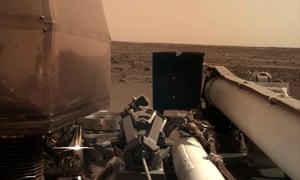Researchers are working with Nasa to see if clowns help team cohesion on long space missions
Wanted: smart, fit and unflappable applicants for humanity’s first mission to Mars. Must have: crazy wig, oversized boots and a big red nose.
It is enough to make Neil Armstrong spin in his grave, but researchers have found that the success of a future mission to the red planet may depend on the ship having a class clown.
Rather than the cool personality that underpinned the Right Stuff in the Apollo era, future astronauts may need to prove they have something very different: the Silly Stuff. An onboard comedian is a proven way to unite teams in stressful situations, research shows.
“These are people that have the ability to pull everyone together, bridge gaps when tensions appear and really boost morale,” said Jeffrey Johnson, an anthropologist at the University of Florida. “When you’re living with others in a confined space for a long period of time, such as on a mission to Mars, tensions are likely to fray. It’s vital you have somebody who can help everyone get along, so they can do their jobs and get there and back safely. It’s mission critical.”
Johnson spent four years studying overwintering crews in Antarctica and identified the importance of clowns, leaders, buddies, storytellers, peacemakers and counsellors for bonding teams together and making them work smoothly. He found the same mixes worked in US, Russian, Polish, Chinese and Indian bases.
“These roles are informal, they emerge within the group. But the interesting thing is that if you have the right combination the group does very well. And if you don’t, the group does very badly,” he said.

Nasa plans to fly astronauts around the moon in 2023 as part of its preparation for a crewed mission to Mars as early as 2033. The Russian and Chinese space agencies have proposed human missions from 2040 onwards. Private ventures such as Elon Musk’s SpaceX have also set their sights on the planet.
But a mission to Mars is no cakewalk. On average, the red planet is 140m miles from Earth and the travel time one way is around eight months. The distance alone is expected to take a psychological toll, but astronauts must also face a time delay in communications of up to 20 minutes each way. In an emergency, there will be no time to call mission control: the crew are effectively on their own.
Even minor delays in communication are bad for crews. When Nasa tested a 50 second communications delay on astronauts on the international space station, they found well-being slumped and frustration rose, with knock-on effects for how efficiently tasks got done.
Johnson is now working with Nasa to explore whether clowns and other characters are crucial for the success of long space missions. So far he has monitored four groups of astronauts who spent 30 to 60 days in the agency’s mock space habitat, the Human Exploration Research Analog, or Hera, in Houston, Texas.
“We now want to see if these types of informal role dynamics function similarly in space-simulated environments,” Johnson said at the American Association for the Advancement of Science meeting in Washington DC. Early results suggest they do, he said.
Johnson, who also studied isolated salmon fishers in Alaska, found that clowns were often willing to be the butt of jokes and pranks. In Antarctica, one clown he observed endured a mock funeral and burial in the tundra, but was crucial for building bridges between clusters of overwintering scientists and between contractors and researchers, or “beakers” as the contractors called them.
The Norwegian explorer Roald Amundsen appreciated the importance of the expedition clown, Johnson said. In 1910, Amundsen picked the large, jolly chef Adolf Lindstrøm for his attempt on the South Pole, knowing that Lindstrøm’s joie de vivre would relieve the stress of homesickness and the long polar nights. “He has rendered greater and more valuable services to the Norwegian polar expedition than any other man,” Amundsen noted in his diary.
Johnson said: “Lindstrøm was viewed by others as a great entertainer who helped maintain spirits and morale over the long austral winter. His role was informal but critical for maintaining group cohesion in this extreme environment.
“Scott’s polar expedition was radically different. The crew broke into cliques, they didn’t have a cohesive group.”
But, as Lindstrøm showed, there is more to it than making people laugh. “Being funny won’t be enough to land somebody the job,” Johnson added.
Source: The Guardian

































Leave a Comment
You must be logged in to post a comment.